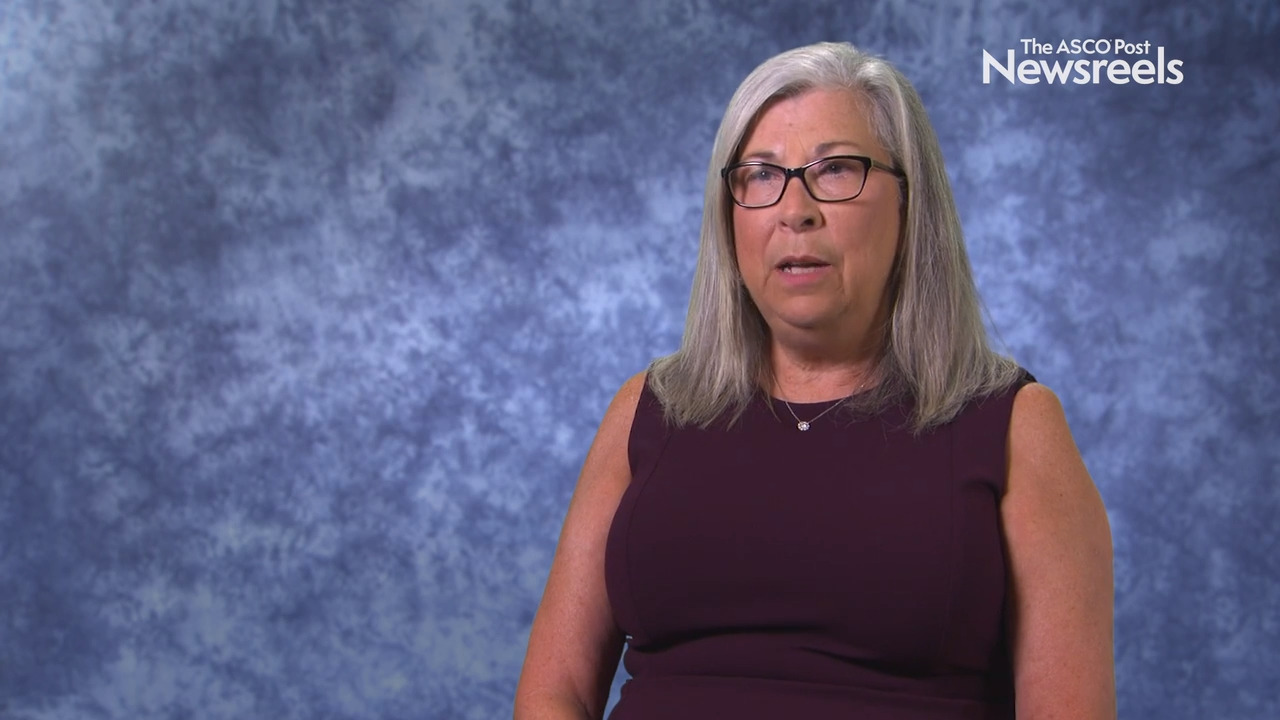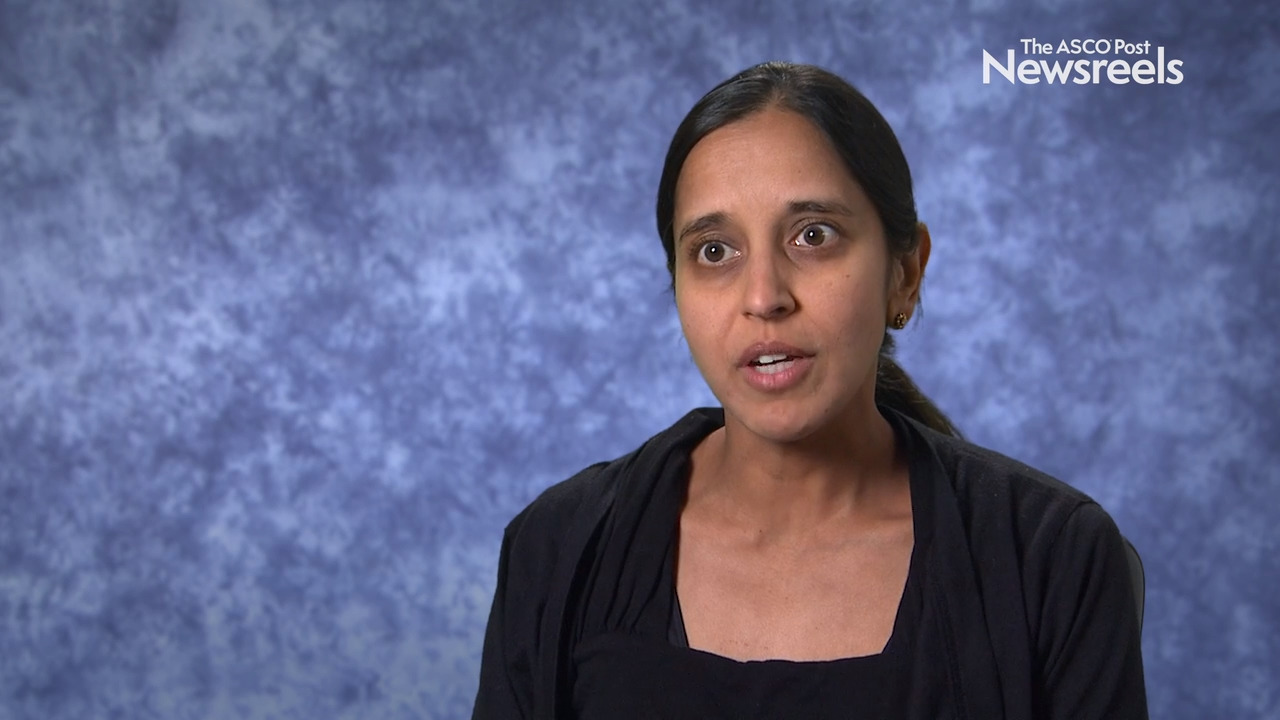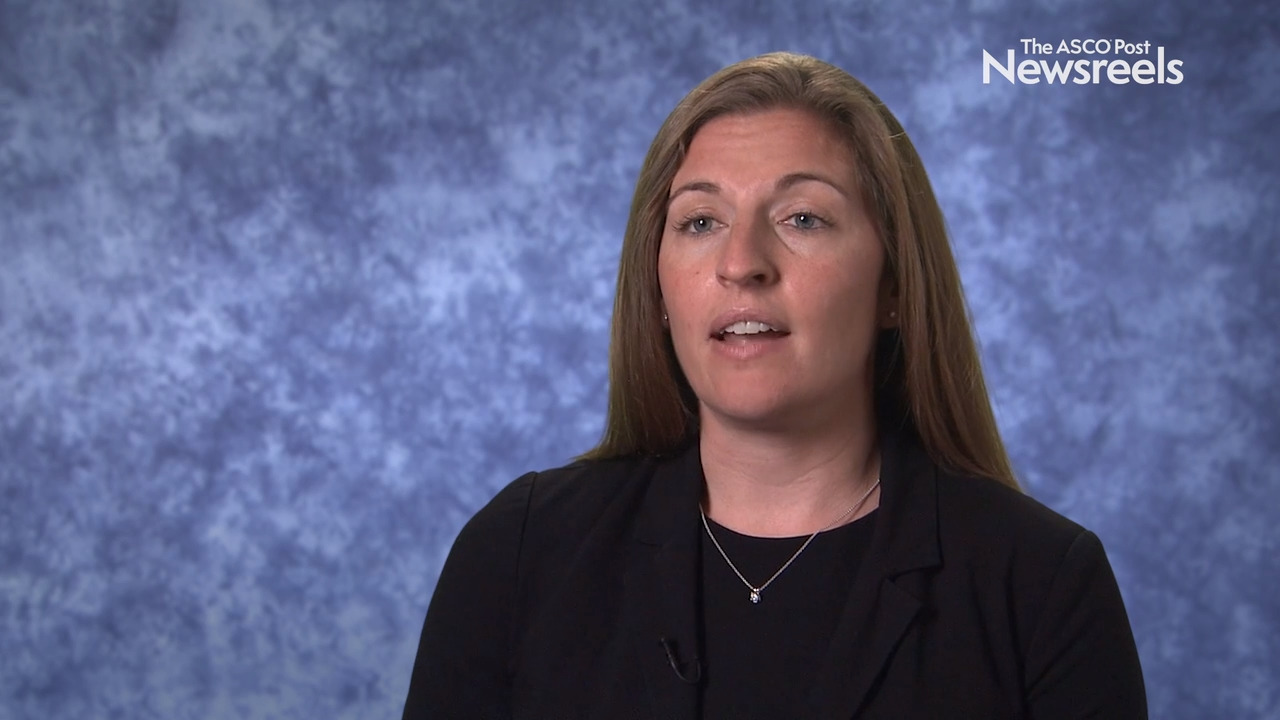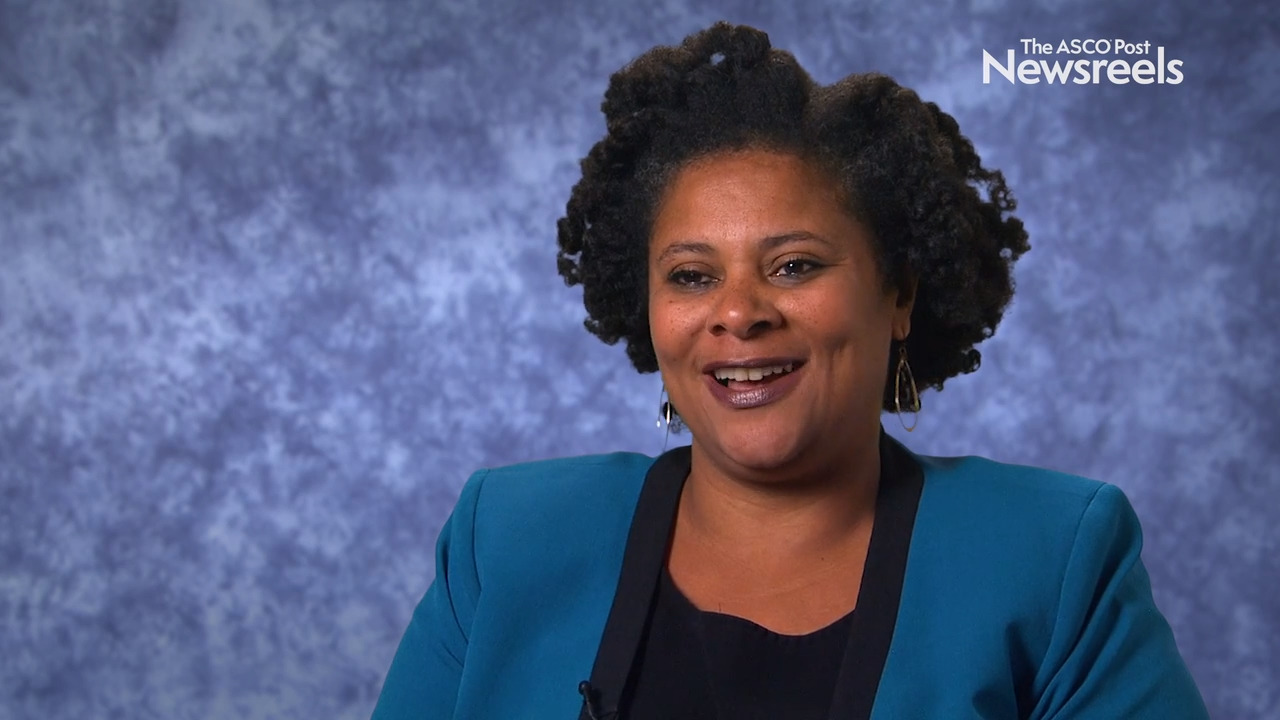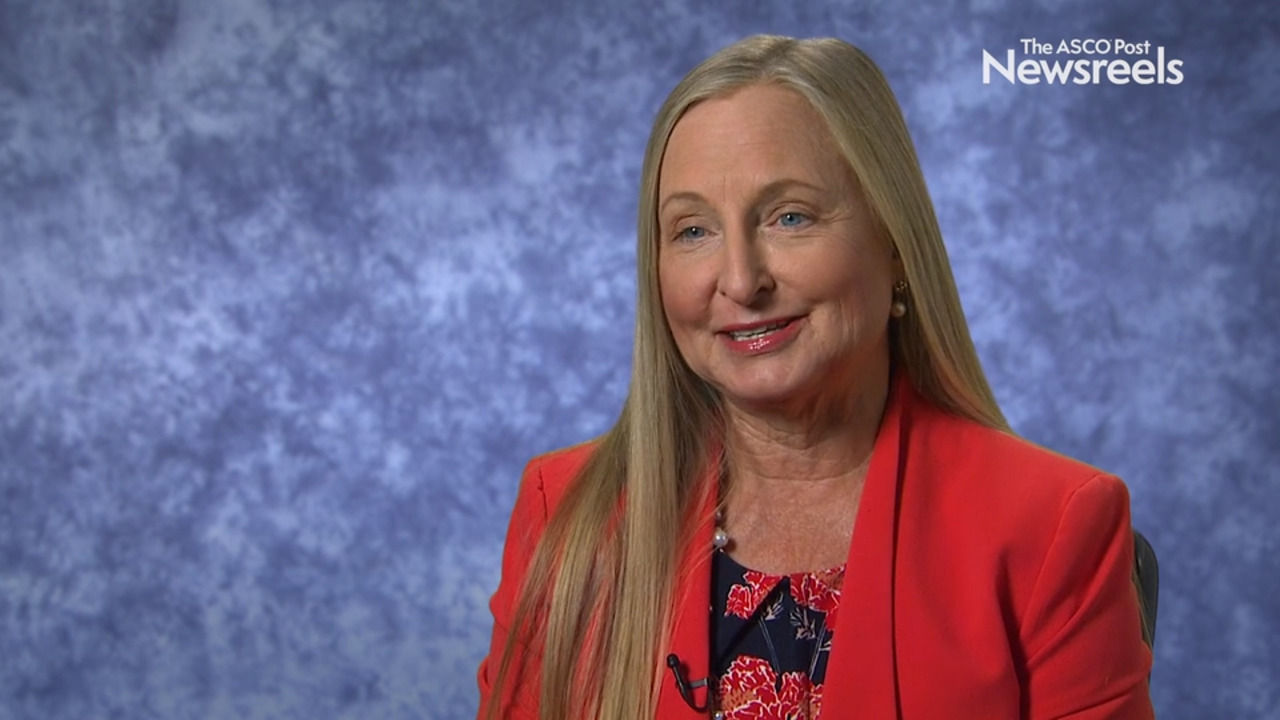Nadine Housri, MD, on Online Tumor Boards: A New Resource for Practicing Oncologists
2019 Quality Care Symposium
Nadine Housri, MD, of the Yale School of Medicine, talks about a new paradigm in sharing knowledge from tumor board discussions at NCI-designated comprehensive cancer centers, with community oncologists on themednet.org. Currently, thoracic, breast, and GI cancers are included, with plans to expand the scope (Abstract 272).
Grace C. Hillyer, EdD, MPH, of Columbia University Mailman School of Public Health, discusses the many barriers to enrolling patients in clinical trials, most notably different attitudes toward and perceptions about research studies among clinicians vs patients. Her findings point to the need for better communication between the two groups and more patient input (Abstract 170).
Manali I. Patel, MD, of Stanford Cancer Center, discusses enhancing value for patients with cancer treated by community practitioners at the end of life by also utilizing trained lay health workers in a novel intervention that reduced the use of acute care and emergency department visits while improving quality of life.
Lauren M. Hamel, PhD, of Wayne State University/Karmanos Cancer Institute, discusses her findings on the ways in which nonverbal behavior between doctors and patients of the same or different races can affect their relationship, quality of communication, and ultimately, perhaps outcomes as well (Abstract 169).
Karen M. Winkfield, MD, PhD, of the Wake Forest Baptist Medical Center, discusses cultural factors that contribute to cancer care disparities, the role of national policy in addressing inequities in access to care, and what local institutions can do to improve the situation.
Linda D. Bosserman, MD, of City of Hope, discusses guidelines vs pathways, how to personalize pathways, integrated diagnostics, supportive care regimens, and financial guidance for patients with cancer.
